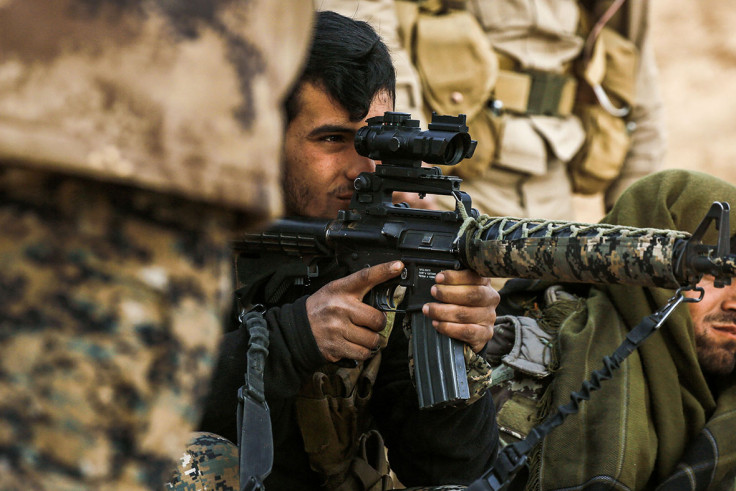Donald Trump 'to implement Obama-era plan to capture Raqqa with Syrian Kurdish forces'
President Erdoğan is likely to be told when he visits the White House.

US President Donald Trump is reportedly preparing to execute an Obama-era plan to retake the Syrian city of Raqqa from Isis. The city serves as the de-facto capital of Isis's so-called caliphate and is the last unchallenged major urban stronghold the group controls.
Turkey has expressed concern over the plan to attack Raqqa, with the Syrian Democratic Forces (SDF) spearheading the operation, with support from US air power and artillery. The SDF is mostly made up of Kurdish YPG fighters, but also includes Arabs and militants from other ethnic groups.
Ankara, currently involved in a civil war with Kurdish guerillas within Turkey, has long been wary of allowing Kurds to gain too much leverage in Syria.
But the US government has rejected alternative plans for Raqqa put forward by Turkey and is expected to formally inform President Recep Tayyip Erdoğan of the SDF plan when he visits the White House later in May, Foreign Policy magazine reported.
The operation is likely to move forward swiftly after Erdoğan's visit, officials told the magazine, having already been delayed by the Trump administration for a review and then for Turkey's contentious referendum, which took place in April.
Officials are apparently already preparing to arm the SDF, who will form the attack group.
Turkey regards Syrian Kurdish forces like the YPG as aligned to the PKK, which it, and the US and UK, view as a terrorist group. But the US government, who have long provided them with air support and other help in their fight against Isis, maintains a distinction between the two groups.
In return for helping to liberate Raqqa, the Syrian Kurds are also planning to ask for US backing in creating a trade route to the Mediterranean, the Observer reported. Such a move would alter the shape of Syria and aggravate Turkey even further. Ankara would likely view it as a haven for PKK extremists.
"Arriving at the Mediterranean Sea is in our project for northern Syria, it's a legal right for us to reach the Mediterranean," Hediya Yousef, co-president of the Federation of Northern Syria, told the newspaper.
"If we arrive at the Mediterranean it will solve many of the problems of the population in northern Syria, everyone will benefit."
Even if the US gave their support, such a project would also need the backing of the Syrian government and their Russian allies to be successful.
© Copyright IBTimes 2024. All rights reserved.






